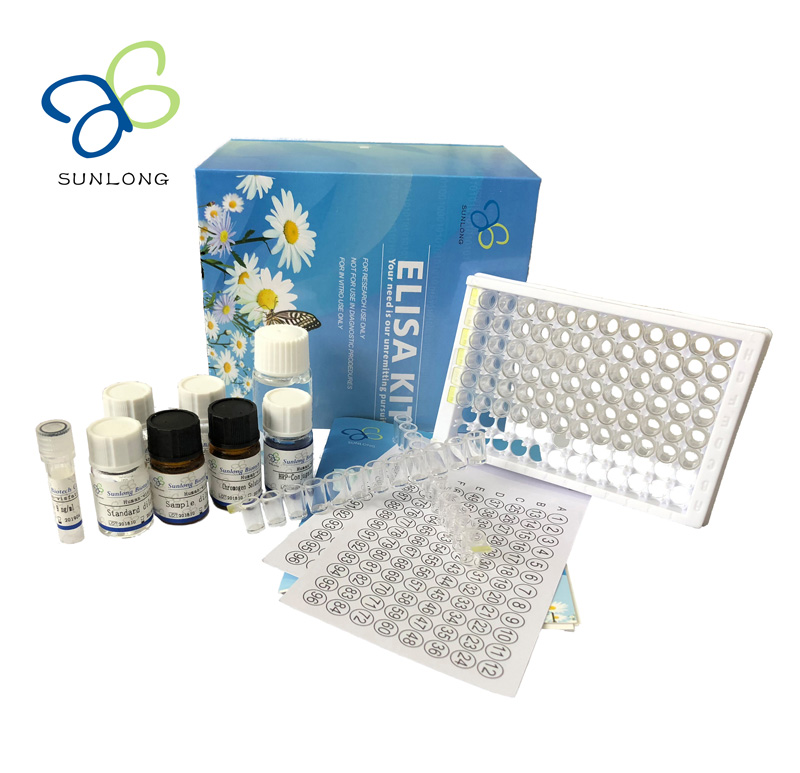Human Insulin ELISA Kit
Catalog No :
CAS Number :
Brand :
In Stock
Assay range: 0.3 mU/L -20 mU/L
Sensitivity:0.05 mU/L
Standard:27 mU/L
Sample Volume:50ul
Wavelength:450nm
Specifications:
| Application | ELISA-Based Assays |
| Storage Temperature | 2-8°C |
| Product Type | Elisa Kit |
| Product Grade | Molecular Biology |
The Human Insulin ELISA Kit is a highly sensitive and specific assay designed for the quantitative detection of insulin levels in human serum, plasma, urine, culture media, and other biological fluids. This kit is essential for research into glucose metabolism, diabetes, and related metabolic disorders.
Sample Preparation
1. Serum Preparation
- Collect whole blood and allow it to clot at room temperature for 10–20 minutes.
- Centrifuge at 2,000–3,000 rpm for 20 minutes to separate the serum.
- Re-centrifuge if precipitates appear during storage.
2. Plasma Preparation
- Collect whole blood into tubes containing anticoagulants (e.g., EDTA or citrate).
- Incubate at room temperature for 10–20 minutes.
- Centrifuge at 2,000–3,000 rpm for 20 minutes to obtain plasma.
- Re-centrifuge if necessary.
3. Urine Samples
- Collect urine in aseptic tubes.
- Centrifuge at 2,000–3,000 rpm for 20 minutes and carefully collect the supernatant.
- Re-centrifuge if precipitates form during storage.
4. Cell Samples
- For cell secretions, collect culture supernatants in aseptic tubes and centrifuge at 2,000–3,000 rpm for 20 minutes.
- For intracellular components:
- Dilute cells in PBS (pH 7.2–7.4) at 1×10⁷/mL.
- Disrupt cells via repeated freeze-thaw cycles.
- Centrifuge at 2,000–3,000 rpm for 20 minutes and collect the supernatant.
5. Tissue Samples
- Cut and weigh tissue samples, then freeze in liquid nitrogen and store at -80°C.
- Homogenize samples in PBS (pH 7.4) at 4°C.
- Centrifuge at 2,000–3,000 rpm for 20 minutes and collect the supernatant.
Important Notes
- Perform ELISA assays as soon as possible after sample collection.
- Store samples at -20°C if immediate testing is not feasible.
- Avoid repeated freeze-thaw cycles to preserve sample integrity.
- Do not use samples containing sodium azide (NaN₃) as it inhibits HRP activity.
Applications
- Diabetes Research:
- Study insulin levels as a biomarker for diabetes and glucose metabolism.
- Endocrine Studies:
- Investigate insulin secretion and regulation in response to glucose levels.
- Metabolic Disorder Research:
- Explore insulin dynamics in conditions like metabolic syndrome, obesity, and insulin resistance.
- Drug Development:
- Evaluate the efficacy of therapeutic agents targeting insulin secretion and activity.
- Clinical Diagnostics Research:
- Support diagnostics for hyperinsulinemia, hypoglycemia, and diabetes-related disorders.
Advantages
- High Sensitivity and Specificity:
- Detects low levels of insulin with minimal cross-reactivity or interference.
- Wide Sample Compatibility:
- Validated for serum, plasma, urine, cell culture supernatants, and tissue homogenates.
- Ease of Use:
- Includes pre-coated plates and ready-to-use reagents.
- Reproducibility:
- Provides consistent and reliable results across multiple experiments.
Storage and Stability
- Store all kit components at 2–8°C.
- Avoid repeated freeze-thaw cycles to ensure assay reliability.
The Human Insulin ELISA Kit is a vital tool for researchers studying glucose metabolism, diabetes, and related metabolic conditions. Its precision, ease of use, and broad compatibility make it indispensable for various clinical and experimental applications.




 0
0
